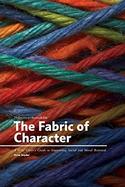It’s far too early to predict which party will win next year’s election, but not too early to announce the national media as a clear loser in terms of national influence and prestige.
Pew reports that millennials have become as negative about major media as older generations, with their rate of approval dropping from 40% in 2010 to 27% today. Gallup tracks a similar pattern, finding 70% losing trust in the media, including nearly half of Democrats. read more »






















